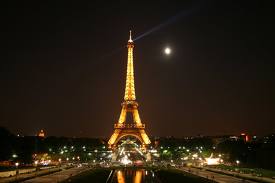 Some people have told me that the poems in my new book, No Need of Sympathy, feel like premonitions. Did something in me know, when I wrote those poems, that I was in danger already? But consider how much poetry is about love and death. Okay, I’m not dead. But the very word cancer sounds the echo of mortality.
Some people have told me that the poems in my new book, No Need of Sympathy, feel like premonitions. Did something in me know, when I wrote those poems, that I was in danger already? But consider how much poetry is about love and death. Okay, I’m not dead. But the very word cancer sounds the echo of mortality.
All thoughts, all images, if you stay with them long enough, hit bedrock. Love and death. We're drawn to bedrock. We almost can’t help ourselves from slowing down or stopping at a car crash, even when we can be of no use there. We’re looking for something we probably won’t find until the moment of our own death. A clarity, a sense of what this life is, at its root.
Love: the same. We start a poem by loving a leaf, or a vase, or a moment, an emotion of the moment. But, oh, what if we can't hold on to it? The more love, the more awareness of what its absence feels like. If we stay with the beloved without flinching, it leads us to where love and loss, love and death, are interchangeable. Don’t ask me what that means. It just feels that way.
I was looking through my book to see which poems might ring as premonitions. I don’t know. . . How about “I Take the Boys Up the Eiffel Tower”? In the midst of this excitement, getting to the top of the Eiffel Tower and looking over all of Paris, the thought of death takes center stage. The leap from the Towers, the moving far from the details of life we’ve held dear, the death of the bees, the polar bears, my fear of falling at Niagara Falls. We’re all suspended, swaying, if we pay attention.
If we could see time, supposedlyit would look like a tesseract, beams slidingalong vectors, sideways and inside,difficult as the leap outfrom the Trade Center Towers—you only get there by releasing a death-holdon the last frame you’ve got. We are on the wayup, late in the day, sun stripingthe cross-girders, the boys and Ion the second-level elevator to the top,crammed in like cattle. The higher we getthe more time’s suspended, something to dowith Einstein, something to do with distancesqueezing out details that have meanteverything to us. The bees, for example:what if we kill them off? And what ifthere’s nothing left for polar bearsto sit on? I tell the boys about Niagara Falls,about sitting on the stone wall, my barelittle legs, knit cap, water pouring and tearingbelow. “What happened?” they wantto know. “I didn’t fall, of course,” I say,not remembering, really, onlythe photograph. The rooftops of Paris fan outbelow. “A giant spider web,” say the boys.Spiders, too, they’ll be gone.Meanwhile, they go on stringingwebs while our sky disappears behindthreads of lights, wind swayingthe platform. The boy’s eyes get allfar away, as if the body could be emptiedenough to forget to die, or, at leastto fly through itself, god-speed.
[The top image, by the way, is a tesseract].
Is this a bleak poem? Is Keats’s sonnet, “When I Have Fears” bleak? It seems to me that the only way a poem can qualify as bleak is when it doesn’t touch bottom, when it doesn’t reach the place where love and death merge in some sort of glorious jazz, some bow scraping across catgut, some brush-stroke made of a perfect balance of pushing and pulling.
Paradox is the only way there is to speak of anything real, it seems. Not this, not this, but something that requires the two.
Of course. Those of us who write poems are fervently hoping for the tone, the language, the pull toward death and the pull toward life to be in perfect balance to sound the music of the spheres. It’s what we do, all of us in our own way, with our own art, in this precious time we have before our own personal gravitational collapse.
●
Another note: If you go to The Writers Handful, you can read a brief interview with me by the wonderful short story writer and essayist, Patricia Ann McNair. Her award-winning collection, Temple of Air, is breathtakingly good reading and her website is full of good stuff.

